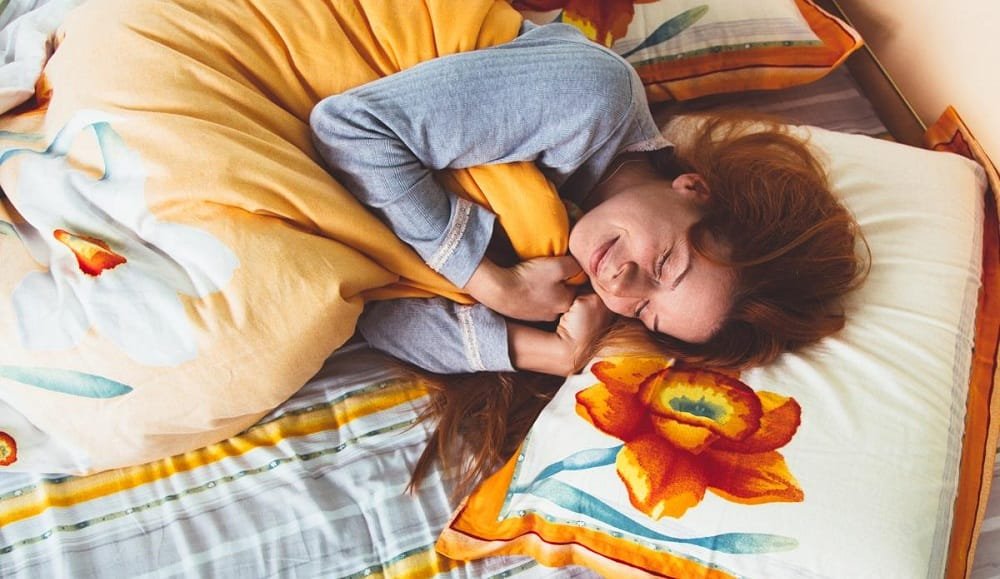Do you pretend you don’t hear the alarm signaling you to wake up and instead bury your head in the pillow?
Do you end up going to sleep past midnight only because you got a “second wind” propelling you into the world of infomercials?
Maybe you’re a parent with children who frequently wake up and, as a result, cause you to sleep very little because you’re sharing a bed with three other people?
If one of these scenarios sounds like you, then you are not alone. More than half of Americans want more sleep and better sleep. While it’s true that sleep needs vary with individuals, it’s understood that younger people require more sleep than adults. Babies and children need a minimum of 10 hours of sleep while adults are well rested once they receive a minimum of 8 hours of sleep.
So how can you get a better night’s sleep? How do the other half of Americans sleep like a baby and feel rested every morning while you struggle to open your eyes and start the day?
Before I was married and had children, I slept like a rock star. I had the whole bed to myself, could sleep with lots of blankets if I wanted to, and I could kick my legs out or throw my arms across the bed without getting a rebuttal. It was perfect.
Then marriage and children changed all that. I had to share a bed with someone who was always hot while I was always cold, and when my children were babies, I was waking up 4-5 times a night for a year.
I worked hard at getting my children to sleep through the night. I had twins, so it was imperative that they slept because they often woke up at different times during the night, and my head would barely hit the pillow before the other would cry out.
I became a sleep expert. My husband calls me the “Sleep Nazi.” I learned the perfect formula for my babies to get a good night’s rest and not wake up cranky or at all during the night.
I started adopting some of these techniques, and I no longer toss and turn or stress out about not sleeping.
Learn how you can sleep like a baby and pacify your sleep with these 5 knockout tips to send you into dreamland.
1. Dull Out Pesky Noise With White Noise
One thing I learned quickly was if I played white noise while my children were sleeping, I got a better sleep. For the first year they were in our room I could hear the low hum of static throughout the night.
What is white noise? It’s monotonous and continuous sounds that become background noise while you sleep. Some examples of white noise include
- The dishwasher
- The washing machine
- Static Radio
- Vacuum
- Shower
- Rain
- Ocean
- Wind
- Fan
You don’t have to wait for a rainstorm to get a good nights rest. Nowadays, there are even many white noise apps available for smartphones, and they are increasing in popularity. A favorite of mine is iRelax Melodies. It has 16 soothing sounds like rain, birds, waterfall and flute that will put you to sleep in no time.
Typically though, people use a fan in their room to act as white noise. It helps dull out common night noises like car alarms, creaks from the house settling or cars and trucks driving near your home.
White noise also helps you get a better quality sleep because you are no longer waking up to all the small noises that would otherwise keep you up.
Don’t worry if you think you will become reliant on white noise in order to fall and stay asleep. The associate director of the John Hopkins Sleep Disorder Clinic, David Neubaucer, says white noise is akin to changing your sheets or removing a blanket. It doesn’t act as a necessity for your sleep and you can easily stop using it, although why would you if your sleep improves?
2. Fresh Air Does Sleep Some Good
Experts agree that having a cool room helps you fall and stay asleep. Your body temperature drops, which triggers you to fall asleep. Some people find it difficult to fall asleep in a warm room. If it’s summer and you don’t have air conditioning, then you know the feeling of tossing and turning all night because you just can’t get comfortable.
When your body has a hard time dropping its internal temperature due to it being too warm or too cold in the environment, then your sleep suffers.

What’s the ideal temperature to get a great night of shut-eye? It’s suggested that you keep your room between 65-72 degrees Fahrenheit. Each person is unique however, so what is cold for you may be warm for someone else. Play around with the temperature and see if dropping it a degree or two will help improve your sleep quality.
Personally, I sleep with the window open a crack most of the time. When it snows I don’t leave my window open for fear of freezing my window open, but during the day I make sure to air it out with some fresh air. I prefer a cooler room, as I like to sleep with many blankets. My husband, on the other hand, enjoys the cooler temperature, but sleeps with only a sheet.
3. Save Your Screen Time for the Morning
Using your smartphone, laptop, computer or TV can all affect the quality of your sleep.
When you spend all night checking Twitter or watching YouTube, you inhibit the production of melatonin, a hormone responsible for making you sleepy. The wavelength of light emitted from these devices tricks our internal biological clock, making your body think it’s light outside.
So instead of Pinning into the wee hours of the night, set time aside during the day to check your social media accounts and text your friends. Or, if you have to attend to emails or work- related computing, try to end those activities 3 hours before you hit the sack.
And for those who just have to YouTube at 3 a.m., consider downloading F.lux. It’s free software that allows you to type away without causing you to disrupt your sleep.
F.Lux works by adjusting your screen’s lighting in relation to the time of day you are using it. For example, when the sun sets, F.Lux adjusts your computer screen to emit warmer tones, thus increasing your productivity and sleep.
4. Your Bed Isn’t a Couch
Okay, if you are a student or struggling to break into acting, then I understand you might have a bed for a couch. But for the rest of us who accidentally arrived in “Insomnia Land,” use your bed for its intended purpose, sleeping (and sex).
If you read in bed, watch TV in bed and even eat in bed, then you’re creating bad habits that will affect your sleep. Instead, read in a chair, watch TV on the couch, eat in the kitchen and sleep in your bed.
My children still sleep in cribs, but they know when they go to their room, they know it’s time to sleep. I’ve conditioned them since they were newborns that you sleep in your crib and now they have no problem falling asleep.
5. Eat Food that Helps You Sleep Better
Most people would agree that a big and heavy meal right before bedtime is a big no-no. Having a full stomach doesn’t signal your body that it’s time to sleep.
It’s okay to eat before you snooze, just try eating the right kinds of food. Stick to light snacks and small portions when you decide to nibble away.
Here are some foods that either help with the production of melatonin or contain sleep-inducing tryptophan that will help you sleep better.
- Warm milk
- Cereal with milk
- Nuts and seeds
- Cherries
Sleep Like a Baby
Using these 5 tips for sleep helped me get a good night’s rest after my children were a year old. Before then, I was waking up numerous times at night, and the sleep I did receive was disjointed and lacked quality.
Once my children were ready to sleep through the night, I found that I was still waking up, expecting them to wake up any minute. I decided to employ some of the things I did to get my children to sleep through the night and I immediately slept better.
Now everyone in our home wakes up rested and ready to begin his or her day.
Do you use these tips to knock yourself out? What else would you add?








